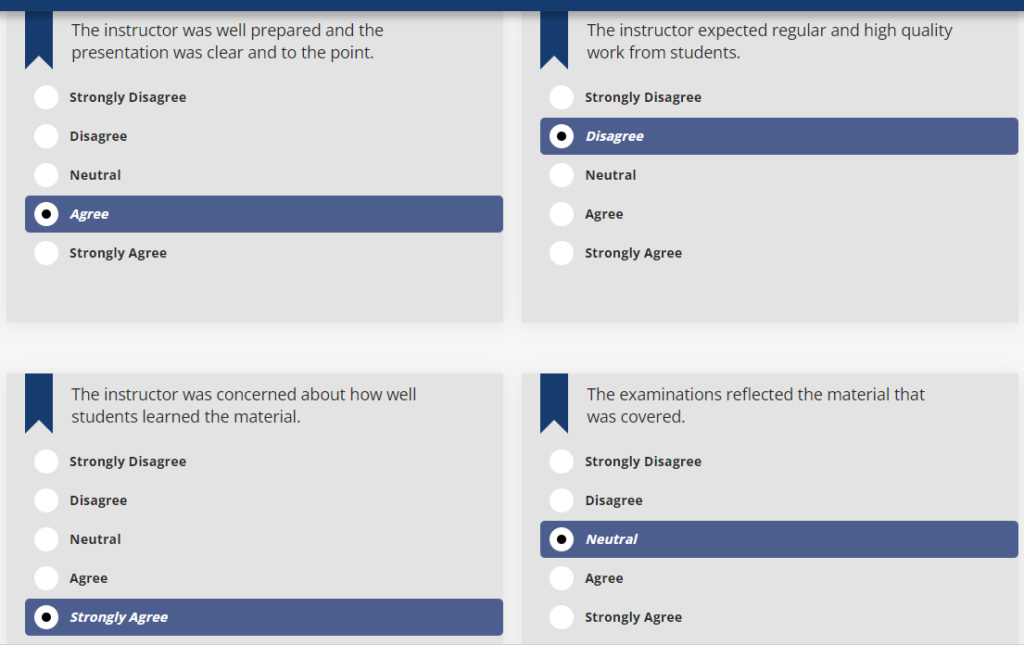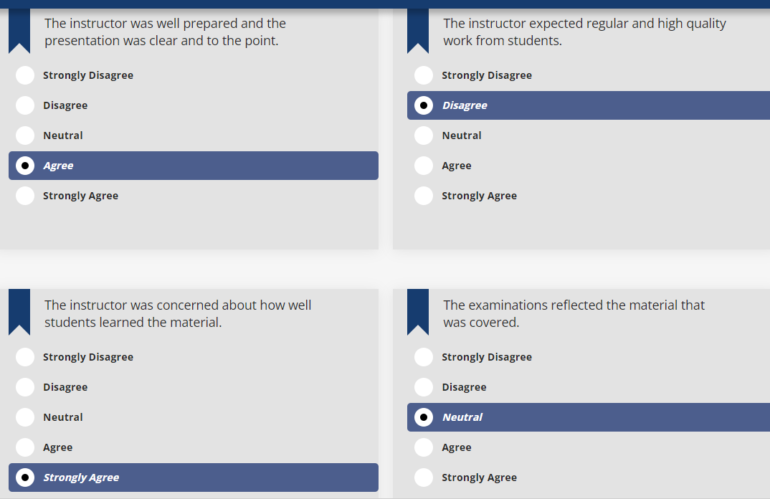
Course evaluations should play an important role in any college or university’s institutional research process. Students are asked to critique courses and instructors at the end of each semester, and their answers, compiling tons and tons of data, can be be used to affect necessary change.
Those changes can be small, such as an instructor finding out they need to speak a little louder while giving lectures. Other times, data reveals sections of a class or department that needs to be completely overhauled.
In our previous post, we’ve discussed how to design better course evaluation surveys. In this post, we’ll discuss the overall benefits of course evaluations and the profound impact they can have on any higher education institution.
1. Improved Assessment of Student Learning Outcomes
Course evaluations provide important feedback to instructors, administrators, and course designers on how to improve the overall quality of courses.
This feedback can be used to inform decisions on updating course materials, addressing common misunderstandings of content, and adapting the curriculum to better meet student needs.
2. Enhance Teaching
Similarly, examining the responses can help instructors identify trends, evaluate personal teaching strategies, and making appropriate changes.
Course evaluations provide useful data on how student learning outcomes are related to different teaching practices. As a result, instructors and administrators can adjust interaction to better accommodate students and provide a more enriching and engaging learning experience.
3. Increased Accountability
Course evaluations provide an opportunity for students to hold their professors and instructors accountable by providing honest feedback regarding the quality of their course, teaching, and overall experience. This feedback helps instructors assess the strengths and weaknesses of their courses, giving them the opportunity to make required improvements.
Course evaluations also raise accountability for administrators, who have greater insight into the overall effectiveness of a course. This feedback can then be used to improve the quality of education through providing additional resources or shifting the focus of the instruction.
4. Improved Retention Rates
When course evaluations are taken seriously and used to improve courses, they can decrease the rate at which students leave the course or institution due to dissatisfaction with their academic experience.
Evaluations can also lead to improvements in course design and delivery, which can increase student motivation and engagement, resulting in higher retention rates.
5. Build Quality Assurance and Compliance
Course evaluations are a critical tool for building quality assurance and compliance as they provide students and instructors and opportunity to give feedback on course content, objectives, and overall effectiveness.
The feedback gathered through evaluations can help identify any areas of improvement, helping to ensure that courses are meeting the desired learning outcomes and standards set by the institution or employer of the course. Additionally, analyzing the feedback can also ensure that courses are compliant with relevant professional and legal standards.
6. Provide Benchmarking Data
Course evaluations provide reliable data to compare and benchmark against historical performance and data from peer institutions. This allows the institution’s academic leaders to identify areas of improvement and excellence.









